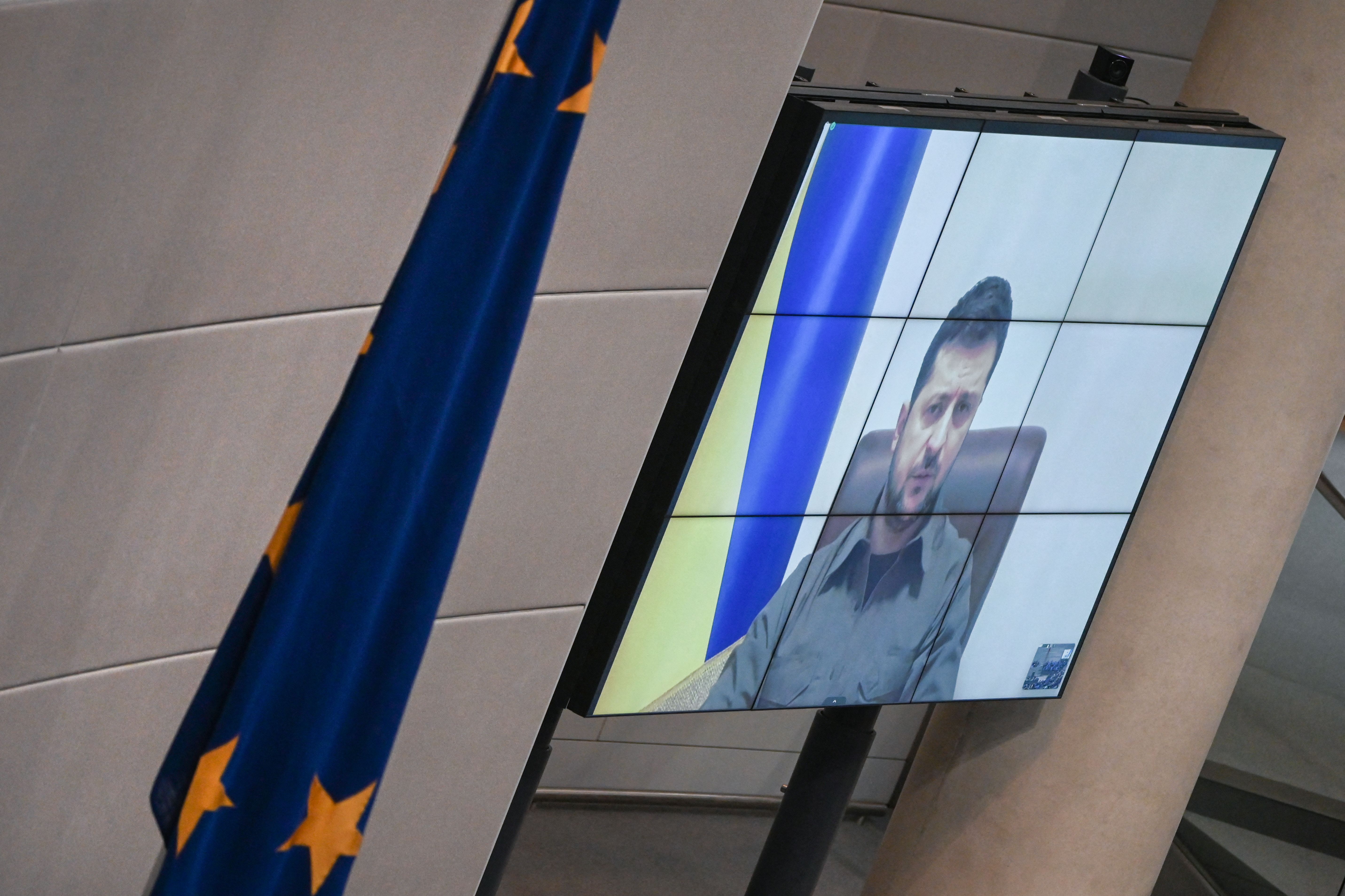Is it 1938 — or 2003?


A free daily email with the biggest news stories of the day – and the best features from TheWeek.com
You are now subscribed
Your newsletter sign-up was successful
It's 1938 again, and the greatest risk the West faces is not a third world war but appeasement in the face of Vladimir Putin's aggression in Ukraine. No, it's 1964 or 2003, and the U.S. must not again make the mistake of being stampeded into a foolish war like Vietnam or Iraq. Actually, it's 1995, and we have a moral duty to intervene militarily to prevent further slaughter, just as we did in Bosnia. Or it's 2011, and ousting Putin as we did Moammar Gadhafi may lead to chaos and dire unintended consequences. Take your pick. Human beings are wired to make comparisons, and in deciding how to best respond to Putin's invasion of Ukraine, it's natural to fall back on historical analogies. But which moment in history is most relevant? That's tricky business. The choice generally reflects the prior biases and agenda of the chooser, and can thus serve to mislead rather than to illuminate.
Ukraine's Volodymyr Zelensky, a canny communicator, has been a font of historical analogies. In trying to rally the Western world to do more to aid his country's defense, he evoked the Battle of Britain in a speech to the U.K.'s House of Commons and echoed Winston Churchill's "we shall never surrender" speech. To the U.S. Congress, Zelensky summoned up Pearl Harbor and 9/11. To Israel's Knesset, he spoke of Putin's "final solution" — the extermination of the Ukrainian people. Putin also has evoked World War II in justifying his barbaric assault, telling Russians their soldiers are engaged in a "denazification" program. It is, of course, not 1938, 1964, or 2003, and while the past can inform the present, it cannot tell us with any certainty how to deter or defeat Putin, who, not incidentally, has 6,000 more nuclear weapons than Hitler did. The only clear lesson of history is that 10 or 20 years from now, a sage analyst will declare that some future conflict is "another Ukraine."
This is the editor's letter in the current issue of The Week magazine.
The Week
Escape your echo chamber. Get the facts behind the news, plus analysis from multiple perspectives.

Sign up for The Week's Free Newsletters
From our morning news briefing to a weekly Good News Newsletter, get the best of The Week delivered directly to your inbox.
From our morning news briefing to a weekly Good News Newsletter, get the best of The Week delivered directly to your inbox.
A free daily email with the biggest news stories of the day – and the best features from TheWeek.com
William Falk is editor-in-chief of The Week, and has held that role since the magazine's first issue in 2001. He has previously been a reporter, columnist, and editor at the Gannett Westchester Newspapers and at Newsday, where he was part of two reporting teams that won Pulitzer Prizes.
-
 What to know before filing your own taxes for the first time
What to know before filing your own taxes for the first timethe explainer Tackle this financial milestone with confidence
-
 The biggest box office flops of the 21st century
The biggest box office flops of the 21st centuryin depth Unnecessary remakes and turgid, expensive CGI-fests highlight this list of these most notorious box-office losers
-
 What are the best investments for beginners?
What are the best investments for beginners?The Explainer Stocks and ETFs and bonds, oh my
-
 What happens now that the US-Russia nuclear treaty is expiring?
What happens now that the US-Russia nuclear treaty is expiring?TODAY’S BIG QUESTION Weapons experts worry that the end of the New START treaty marks the beginning of a 21st-century atomic arms race
-
 Epstein files topple law CEO, roil UK government
Epstein files topple law CEO, roil UK governmentSpeed Read Peter Mandelson, Britain’s former ambassador to the US, is caught up in the scandal
-
 Iran and US prepare to meet after skirmishes
Iran and US prepare to meet after skirmishesSpeed Read The incident comes amid heightened tensions in the Middle East
-
 Israel retrieves final hostage’s body from Gaza
Israel retrieves final hostage’s body from GazaSpeed Read The 24-year-old police officer was killed during the initial Hamas attack
-
 China’s Xi targets top general in growing purge
China’s Xi targets top general in growing purgeSpeed Read Zhang Youxia is being investigated over ‘grave violations’ of the law
-
 Ukraine, US and Russia: do rare trilateral talks mean peace is possible?
Ukraine, US and Russia: do rare trilateral talks mean peace is possible?Rush to meet signals potential agreement but scepticism of Russian motives remain
-
 Panama and Canada are negotiating over a crucial copper mine
Panama and Canada are negotiating over a crucial copper mineIn the Spotlight Panama is set to make a final decision on the mine this summer
-
 The rise of the spymaster: a ‘tectonic shift’ in Ukraine’s politics
The rise of the spymaster: a ‘tectonic shift’ in Ukraine’s politicsIn the Spotlight President Zelenskyy’s new chief of staff, former head of military intelligence Kyrylo Budanov, is widely viewed as a potential successor
